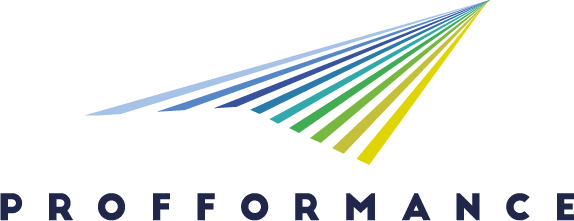SERVEDU
Service-learning in EFL teachers’ education
- 01 - Education
- 02 - Arts and humanities
4. Impact and mission with and for society
- Research-based teaching and learning
- Service-learning and active citizenship learning for impact in society
- Promoting social responsibility through teaching professional and ethical values
- Teaching through real social projects addressing society’s global challenges
- Joint practices with social partners and stakeholders of civil society for empower students to active citizenship
This is a research-based innovation related to the incorporation of the service-learning (SL) concept at the English Department, Faculty of Philosophy (FP), in collaboration with UNICEF and NGO Indigo. SL combines formal instruction with the corresponding service activity in the community, where the students gain further understanding of the course content and an enhanced sense of civic responsibility, through direct application of what they study in appropriate social contexts. We started an innovative cross-curriculum collaboration and joint implementation of SL in several elective ECTS-based courses (Grammar in EFL Teaching, Testing in EFL Teaching, Elements of Culture in EFL Teaching in the 7th and Computer Assisted Language Learning, Phonology in EFL Teaching, Psychology in the 8th semester.) Students can select up to two of these per semester. The voluntary SL (same for all six courses) enables them to cover pre-exam and exam obligations through SL tasks. Also, the content covered by the trainings for SL includes the topics from all six courses, so the students gain more knowledge through this cross—curricular integration. The socially relevant SL component was possible when the FP was invited by UNICEF and Indigo to join their project (see 4.2a) and offer online English language courses for migrant children, for which UNICEF and Indigo provided local logistics and support in 3 migrant centres in Serbia. The main activities, resulting in main outputs are: the professors modified the six elective courses, delivered thematic online training sessions for the students, designed the syllabi for 3 EFL courses and initial tests for migrant children, continuously supervised students in lesson preparation, testing, class and course organization and team communication. Students prepared lesson plans and teaching materials, delivered online classes to children, did the initial and final testing, participated at weekly coordination meetings, wrote reflexive teaching reports. The main outcomes are: students gained professional competences for all pedagogic aspects of EFL teaching; digital competences to use google classroom, search for, evaluate and create teaching materials using online resources and courseware tools; interpersonal communication and team working skills in online, international and multicultural environment; raised sensitivity towards vulnerable groups and social issues. Migrant children benefited by gaining basic English and digital competence
Methodology
Tools, equipment, technology used
Outcomes and outputs, main results
Lessons learnt
Adaptability and sustainability of the best practice (for other institutions)
Promotion of best practice
Scope and impact
- Course/department level
- Faculty level
- Institutional level
- National level
- EU/EHEA/International level
6.1 Digitalization
- Outstanding, innovative, excellent practices of online / blended / hybrid learning
- Innovative, novel methodology in using digital tools/devices in teaching
- Digital skills development and assessment both general and profession-related, embedded in course design, in teaching and assessment
- Novel digital solutions (tools, frameworks, devices, tasks to enhance efficiency and motivation)
- Data security and responsible digital presence embedded in learning outcomes
Reasoning: Digital competence developed through skills in collaborative learning, in using digital educational applications and in adapting EFL online resources. The Akelius platform was a digital support in connecting lesson objectives, visualizing vocabulary/grammar and following learners’ progress. Assignments assessed self-regulated learning, competency in digital content creation and in transferring technological knowledge creatively to new learning situations safely and responsibly (see 5.1 and 5.2).
6.2 Internationalization
- Developing students' multicultural awareness
- Students engagement in international projects
- International projects/research results embedded into course development and T&L
Reasoning: The training included raising multicultural awareness in this service-learning context and in general, respecting learners’ cultures in creating teaching materials and class implementation. Students involved in an international project (see 4.2a) had training for Akelius language platform and insight in UNICEF field work. The courses are partly redesigned to implement the SL component on the basis of internationally published previous research on foreign language education.(Appendix 4 in 7.1)
6.3 Inclusion and diversity, universal design
- Senzitivizing students to consider special needs when practicing their profession
- Course includes hints on how the services/products of the profession could be universally designed/inclusive
Reasoning: In line with major UNICEF policies, the project offered teaching services to the vulnerable group of educationally-deprived children in migrant centers in Serbia. In the process EFL students raised their awareness of the specific needs of this multicultural/multilingual vulnerable group and how to meet such needs in this and other professional contexts through lesson planning, material selection/design, adapting teaching methodology and cooperation with representatives of partner institutions.
6.4 Sustainability
- Teaching material contains profession related sustainability aspects
- Social entrepreneurship projects, service-learning in the topic
Reasoning: The six modified courses contain teaching material related to service-learning in teacher education. Including SL teaching practice directed at vulnerable groups can offer EFL students awareness-raising experience of how to address educational needs and promote inclusive quality education for all, while improving the T&L process in the (online) classroom as informed, well-trained, reflective practitioners. Creating networks of socially responsible partners can have far-reaching social effects

